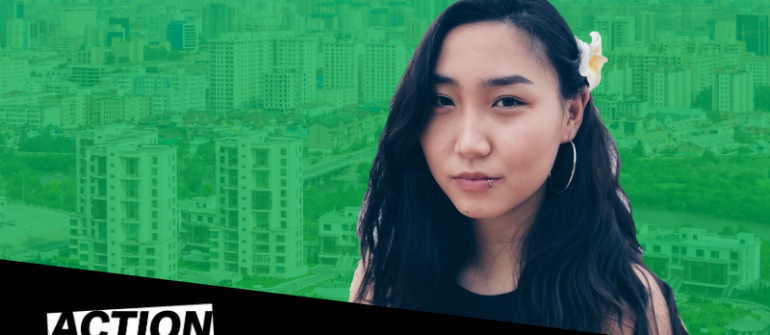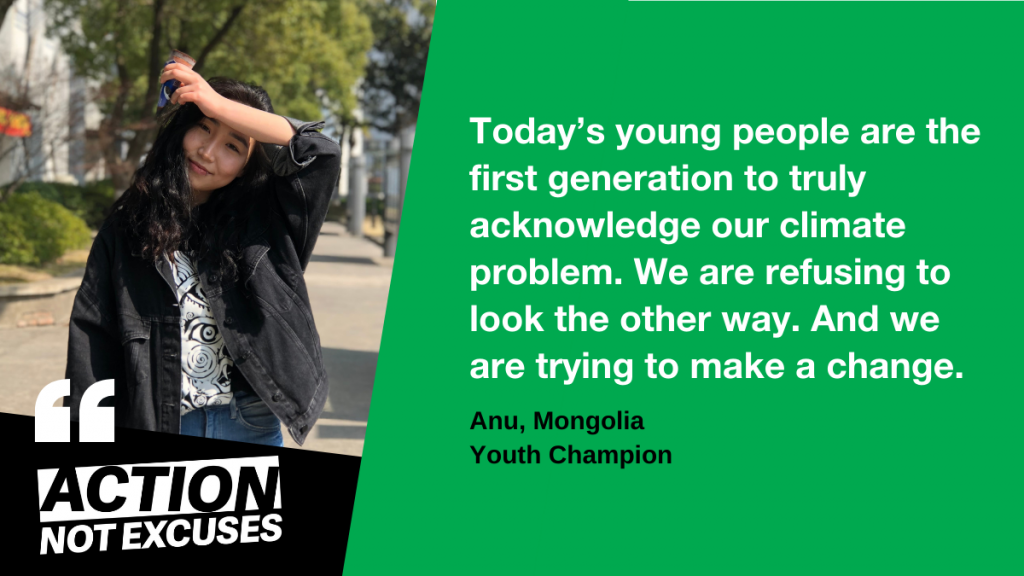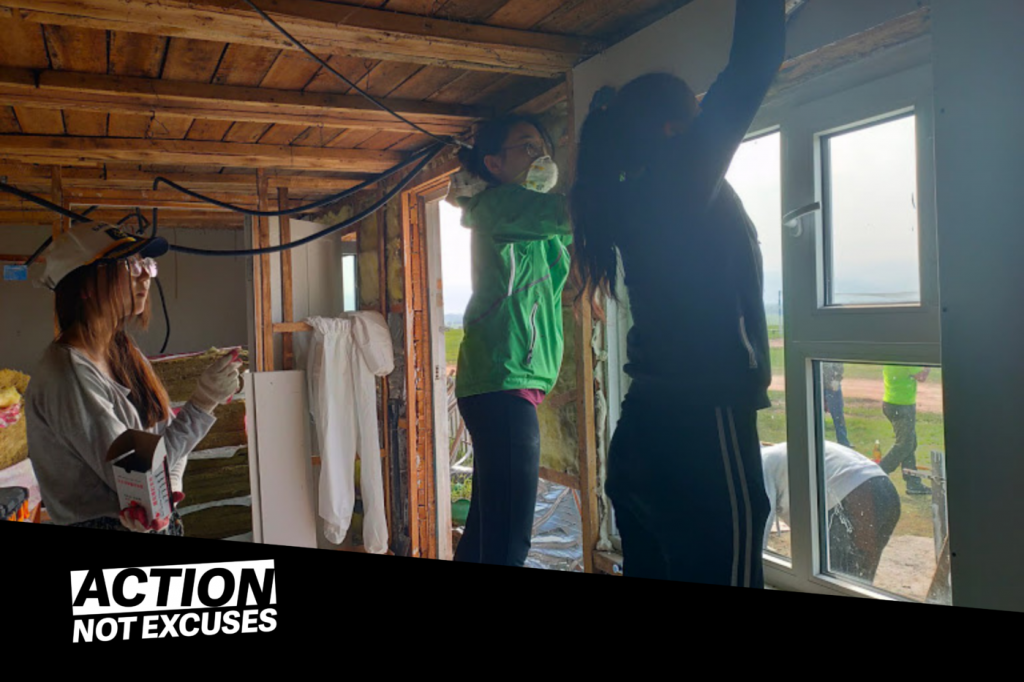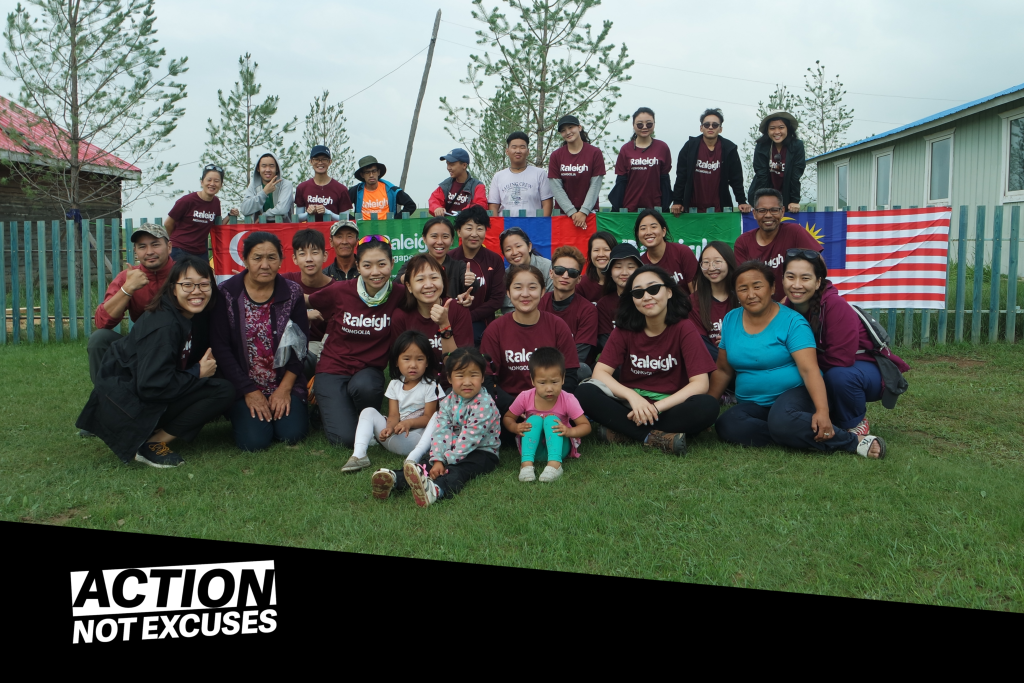Anu’s story
Anu, 24, is from Mongolia’s capital city, Ulaanbaatar. In the last 30 years, her home city has seen huge numbers of young people migrate there from the countryside in search of a better life – but has resulted in rising air pollution and overpopulation. Anu’s team on Raleigh’s Urban Nomads project is training rural young people to make composting toilets and organic fertiliser: businesses that can be started in rural communities to demonstrate that economic prosperity can be found outside the cities.
In Mongolia, there has been a huge rural to urban migration happening since the 1990s. Almost 50% of the population currently lives in Ulaanbaatar. This migration is resulting in new arrivals to the city starting informal settlements made up of gers – a traditional Mongolian yurt.
Without access to central heating, these settlers use coal stoves for heat, because it burns longer than other fuels and is inexpensive during our harsh winters. But it comes at a price. Air pollution is rising, and the settlers’ use of pit latrines means discharge is going straight into the land. This isn’t sustainable.
While volunteering with Raleigh in 2019, I saw how composting toilets could be used to address issues of soil erosion. After returning, I joined a team of Raleigh volunteers and started Urban Nomads, which promotes eco-friendly business ideas to provide economic opportunities to young people.
Youth unemployment is a big problem here. Most of the unemployed are from rural areas. And so naturally, our cities are getting bigger and more overpopulated, while rural Mongolia becomes abandoned. We’re trying to inspire young people to recognise the potential they have in their own hometown so instead of having to migrate to the city, they can use the resources at hand at home.
They have the opportunity to be the first generation of organic producers in the country – something we still don’t see much of in Mongolia. By showing young people how to produce organic fertiliser and teaching them business skills, we hope that the eco-friendly, sustainable businesses that emerge will be replicated by our older generation who will see the importance in tackling our climate crisis.
Our rural young people not only have more experience in our traditional culture, but also, with the internet and social media, have access to the urban side of Mongolian life too. I feel honoured to be selected as the Action not Excuses ambassador for Green Jobs. I’m not from the countryside – I grew up in the city – so this project has a personal connection for me in that it’s shown me how rural and urban Mongolia has a lot to learn from each other.
Today’s young people are the first generation to truly acknowledge our climate problem. Because we now have the knowledge that we have a problem, it’s our job to try to demand a solution. We are refusing to look the other way. We are demanding answers. And we are trying to make a change.



